


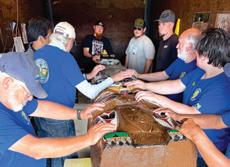






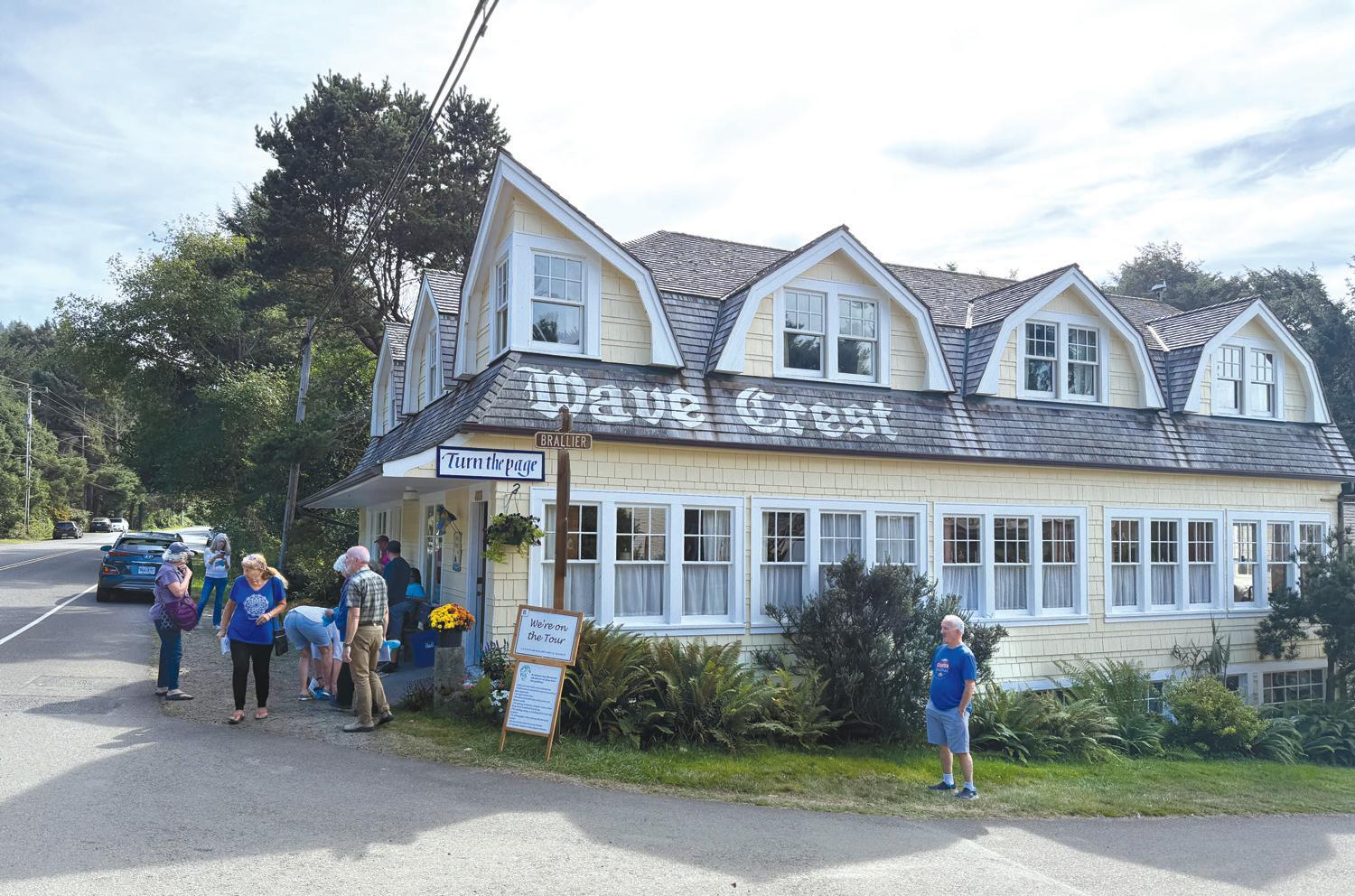
Inn was originally named the Charles Hotel and at times featured a soda fountain and grocery store.












Inn was originally named the Charles Hotel and at times featured a soda fountain and grocery store.
WILL CHAPPELL Gazette Editor
In its 22nd year, the Cannon Beach Cottage tour gave attendees a chance to visit ten homes in the Tolovana Park neighborhood on the afternoon of September 13. The event raised money for the Cannon Beach History Center and Museum and featured a wide variety of homes, as well as the Wave Crest Inn.
Weekend activities kicked off Friday night
with an opening Benefit Bash and continued Sunday with two candle painting workshops at the history center and museum, but the star of the show was the cottages. They varied from the 105-year-old Wave Crest Inn to a home built in 1999 and featured beautiful ocean views and charming gardens and layouts.
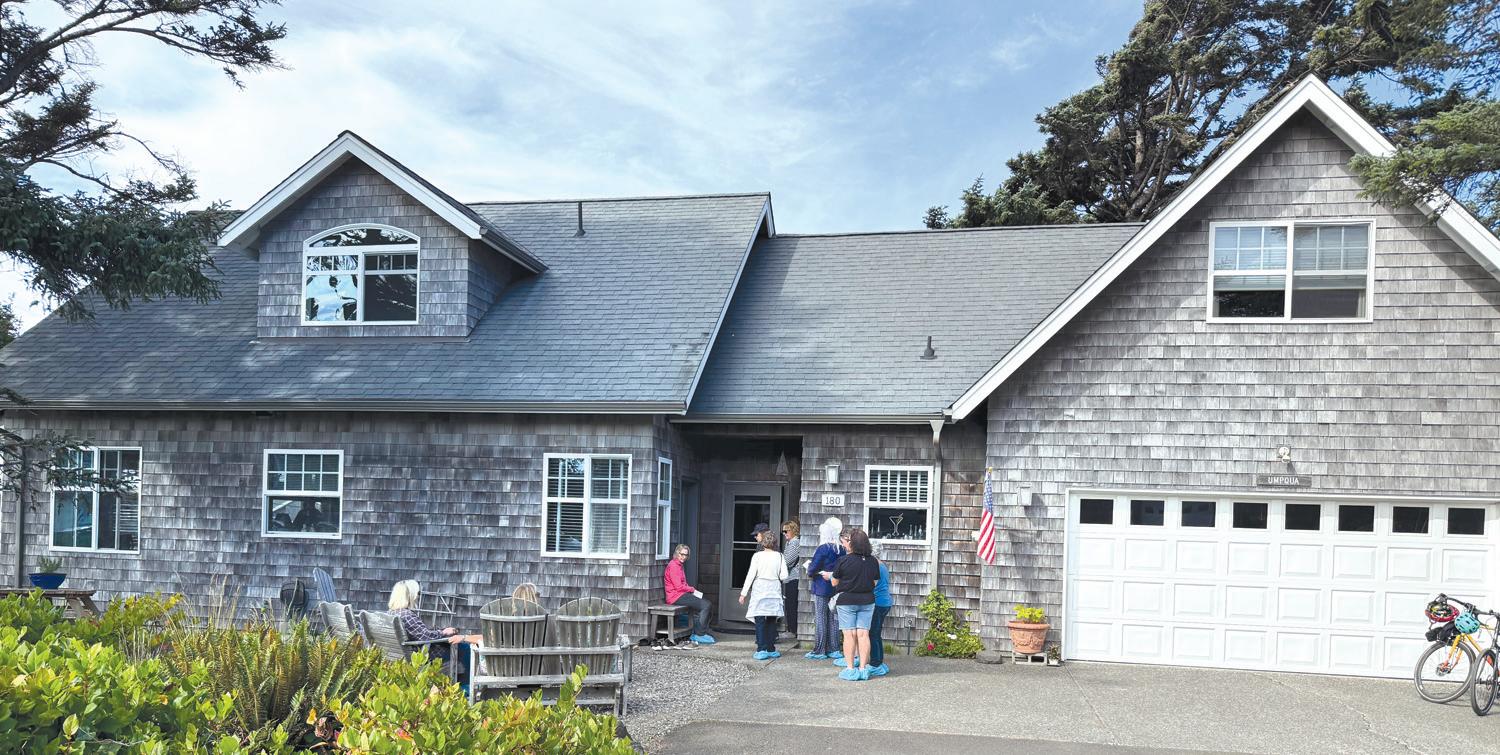
PIERCE BAUGH V for the Gazette
As the skies grow grey and the nights grow longer, the Stormy Weather Arts Festival, one of the biggest events of the year, returns for its 38th year, once again giving locals and visitors something to look forward to.
Jordan Vohel, events and marketing manager for the Cannon Beach Chamber of Commerce, said that the event provides inspiration for attendees to create something themselves.
“When I see the work of other people who are doing all these really beautiful things, it makes me feel like I have the capacity to create beautiful things as well,” Vohel said. “And I would really like for people who visit Cannon Beach to come here and feel inspired to leave with that inspiration and make something for themselves in the future as well.”
In a town with more than a dozen art galleries for a population that doesn’t even crack 2,000, and that is recognized as one of the best art towns in the U.S., the festival draws artists with the chance to shine even when the sun normally isn’t.
“I think personally that everybody has a little bit of a critic inside of them. And it’s really good to have a place to go and practice that expression,” says Vohel
This year’s Artist of the Year for the festival is Greg Scott. The design he chose for the poster of the festival depicts whales, no longer
by gravity, floating about Haystack Rock. Scott’s work has been influ
enced by the Pacific Northwest, hav
ing grown up on Bainbridge
in Washington’s Puget Sound.

PIERCE BAUGH V for the Gazette
Crave the Coast, an event
celebrating the diverse “bounties of the North Oregon coast,” has returned in a revamped format after being put on hiatus due to COVID-19. The event, which began as a one-day gathering in Garibaldi in 2018, is being called the “first of this kind” in its new iteration, according to Mariah Surat, Coordinator of Community & Industry Tourism Programs for the Tillamook Coast Visitors Association.
The new setup requires patrons to visit participating businesses directly, a change intended to simplify logistics, help keep costs lower and “bring business to our businesses” after the post-COVID obstacles faced by restaurants. The celebration spotlights the region’s “untapped” food scene, featuring fresh seafood from the ocean, amazing farms, and world-renowned food producers. Participants are wide-ranging, including distillers, craft beverage makers, farms, and stores, not just restaurants. Deanna Hammond, who has owned the Cannon Beach Bakery with her husband, a master baker, since 2018, is looking forward to her first year participating in Crave the Coast. “I think this event is going to really open up a lot of experiences for people, food experiences for people, local and tourists alike. It’s going to help. It will help extend our season a little,” Hammond says. The Cannon Beach Bakery’s
Following growing frustration with his party’s lack of support, Oregon State Representative Cyrus Javadi switched his party affiliation from Republican to Democrat in the first week of September. In an interview with the Headlight Herald, discussing the decision to change parties, Javadi said that Republicans’ steadfast opposition to working on a solution for transportation in the recent special legislative session was the deciding factor, confirming a feeling that the party was not interested in finding solutions.
“Well, I had enough, honestly,” Javadi said, “I was frustrated with what had been pretty consistent opposition from my own party to do things for the north coast or Oregon that I thought were reasonable solutions to problems we were having and it wasn’t just that they disagreed on principle, they disagreed for reasons I thought were bad, for politics.”
Javadi grew up in a home where politics were not discussed much, and he said that he admired Ronald Reagan as a child, was a fan of Bill Clinton aside from his personal indiscretions and thought, at the time, that George W. Bush did a good job of responding to the September 11 attacks.
As Mitt Romney became nationally prominent during his 2008 and 2012 campaigns, Ja-
monthly special is pumpkin cream cheese muffins. “It’s fitting with the weather changing and all of those good things,” Hammons says.
The bakery will also be hosting two cupcake decorating classes, which will be held on Saturday, October 18 – one from 11 a.m. to 12:20 p.m. and another from 12:40 p.m. to 2 p.m. Each class is capped at six, and tickets cost $30 each. Last year, the bakery hosted a cookie decorating class and Hammond was impressed by how well it went. The class will be led by the bakery’s pastry chef, and all materials will be provided. To sign up, either call the Cannon Beach Bakery at (503) 436-0399, or visit its website at cannonbeachbakery.com.
Cannon Beach’s Pelican Brewing will also be participating in Crave the Coast. Manager Sonya Agnello appreciates that Crave the Coast gives people something to look forward to as summer visitors fade.
“The guests slow down, and we’re always looking for something to keep us excited, keep us motivated when we go into those slower months, especially when it starts raining,” Agnellos said. “So doing an event like this helps us support the community, and also just to have something to get excited about.”
For its monthly special, Pelican Brewing is offering two bier Wurst poached in Sea’N Red and served with mashed potatoes,
WILL CHAPPELL
Gazette Editor
Developers, elected officials, government staff and others involved in housing development assembled in Astoria on September 23, for the Northwest Oregon Housing Summit, hosted by the Columbia Pacific Economic Development District.
Throughout the day, panelists discussed different aspects of housing development in Oregon, and particularly Tillamook, Clatsop and Columbia Counties, which fall into the district, and attendees were given several opportunities to network.
The summit was convened to give attendees the opportunity to learn about the work going on in their neighboring counties as the region and state work to address a housing crisis.
Proceedings kicked off with a panel giving the lay of the housing landscape in the region, moderated by Steve Faust of 3J Consulting, which has helped with housing needs assessments for the Columbia Pacific Economic Development District (ColPac) and the counties.
Faust shared figures from those assessments that showed that over the next 20 years, the three counties need to construct more than 14,000 housing units, including more than 4,000 in Tillamook County.
Discussing the challenges
facing each of the counties, Faust said that there were similarities across the region, as well as unique challenges for each of the counties. In Tillamook, the challenges in housing include a scarcity of homes with limited options for different types of housing, high and rising home prices, low vacancy rates, and environmental and infrastructural concerns constraining new development.
Faust then described the updates to development codes in Tillamook County earlier this year pursuant to Senate Bill 406 that allowed for easier development of socalled middle housing, which includes duplexes, triplexes, fourplexes, townhouses and cottage clusters. The code updates prompted by the bill mean that across the county, each of those types of housing is now allowed outright on land served by water, sewer and power utilities, while duplexes are allowed on all lots where single family homes are permitted. In Clatsop County, the biggest challenges are population growth, which ranges from 7% to 26% in incorporated cities and is 44% in unincorporated areas, a lack of alternatives to singlefamily detached housing, a large number of vacant units in beachfront communities and lack of housing for those with very high or very low incomes, as well as similar topographical and environ-
mental challenges to those faced in Tillamook County.
Columbia County also faces hurdles from limited infrastructure and a shortage of buildable lands due to topographic and environmental constraints.
After Faust’s introduction, Tillamook County Housing Coordinator Parker Sammons discussed Tillamook’s recently completed housing needs assessment, which showed that of the roughly 14,000 units needed in the county, around 40% needed to be some variety of middle housing. Sammons said that the community did not currently look like that and that it would be critical to build those middle housing types to give residents the opportunity to age in place by moving into more appropriate housing and freeing up larger, single-family homes for younger residents.
Sammons also said that the median home value in the county had ballooned by 87% between 2019 and 2023, but pointed to the county’s multifamily housing grant fund, which has used revenue from short-term rental license fees to help construct 400 units of affordable housing across the county, as a way the county is responding.
Sammons said that going forward he would continue to support projects large and small, as addressing the shortage in Tillamook will take varied solutions,
and continue to follow the availability of viable infrastructure.
Elissa Gertler, Clatsop County’s housing manager, said that in Clatsop County, it was important for the government to focus on key locations in the county that were able to support large projects. Identifying those locations will mean finding buildable land in places with developers looking to partner on projects, which Gertler said will look different in each community.
John Roberts, Astoria’s community development director, discussed several projects ongoing or on the horizon in the city, including a project by Clatsop Behavioral Health.
The summit’s second panel focused on updates to housing law in Oregon and was moderated by Nate Stice, the regional housing solutions coordinator for the north and central coast from Governor Tina Kotek’s office.
Stice began the panel with a brief overview of what the governor and legislature have done since Kotek took office to address a projected need of 400,000 housing units across the state over the next decade and as home prices grow seven times faster than wages.
Kotek formed a Housing Solutions Advisory Committee to provide guidelines for jurisdictions across the state to promote housing, focusing
on six areas. Various bills have also seen the state invest in modular housing, allow a one time urban-growth boundary expansion, provide funding for infrastructure to support housing, require larger cities to allow middle housing, and provided loans for construction and systems development charges. Ethan Stuckmayer, head of the Department of Land Conservation and Development’s housing division, then detailed changes at his agency around housing needs analyses.
For the most recent statewide housing needs analysis, this meant that after calculating the needed units across Oregon, the department had divided that projection into regional projections, which were further assigned to counties and cities. Stuckmayer said that in 2023, the department moved from a model that used only population projections to analyze housing needs to one that also incorporated other local factors such as underproduction, homeless people, and the impact of second and vacation homes.
In the morning’s third panel, moderated by Kate Allen from Oregon Housing and Community Services, developers and government officials discussed ways that funding for affordable housing projects has become more difficult in recent years.
Mary Bradshaw of
Northwest Housing Alternatives said that tax credits for affordable housing projects have become increasingly competitive and that many projects now needed eight or nine funding sources, up from three or four in the past. Bradshaw said that creating private-public partnerships allowed developers to access private equity funding and said that nonprofit bonds were another way to access financing. Allen said that as this shift has happened, her agency has begun to ask developers to bring them projects that will work for their community, rather than creating grants for certain types of housing, to better utilize funds.
Astoria City Manager Scott Spence discussed his city’s commitment to helping finance housing projects, including a recent award of $200,000 to a project. Seth Hague, a developer with Mag-Amb Development, said that governments addressing infrastructure needs to make projects possible was a major factor in making projects financially viable.
The group then broke for lunch before two afternoon sessions with attendees choosing between panels on mass timber products in modular construction or brownfield property redevelopment, and flexible financing for green building practices or engaging the community in housing conversations.
The Cannon Beach History Center & Museum is proud to present Souvenir: Past to Present, a new exhibit by artist Becky deVries-Wong, opening on Friday, October 4, 2025, and running through Wednesday, December 31, 2025. This evocative exhibition invites visitors to explore memory, storytelling, and tradition through the lens of fine art and textile work.
A souvenir is more than a keepsake, it is a memory



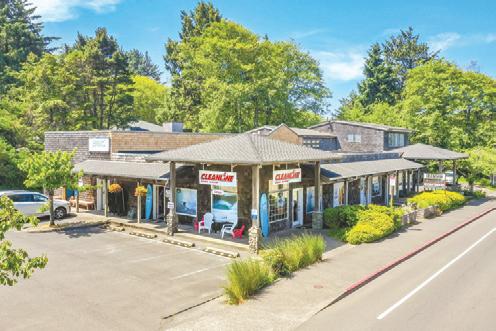
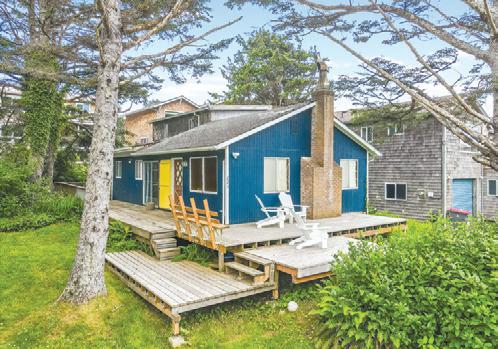

made tangible, a moment preserved. In this exhibit, deVries-Wong uses traditional textile and needlework techniques to create modern works that carry both the emotional weight of remembrance and the creative spark of the present. Her work includes original needlework based on historic samplers (silk on linen, counted threadwork), intricate textiles and fabric collage, appliqué, Broderie Perse, English Paper

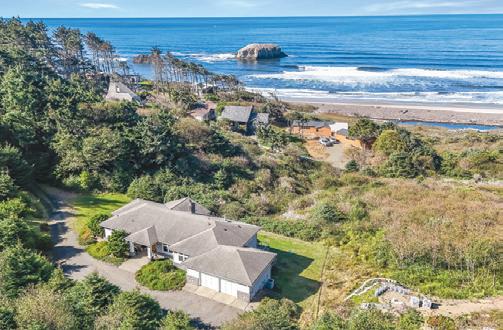



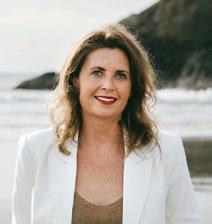
Piecing, foundation paper piecing, hand and machine sewing, and 3D fabric and mixed media pieces. The exhibit also showcases her oil and watercolor paintings. Throughout history, quilting and needlework have served as more than domestic arts, they have been tools of expression, resistance, and education. As deVries-Wong notes, “Sometimes quilting gave women the only platform to voice opinions they weren’t

Since our beginning in 1990 we at Duane Johnson Real Estate have welcomed all of our clients into this community with respect, appreciation, and genuine interest in who you are.
We are friendly, knowledgeable, approachable and committed to helping our clients fulfill their dreams of living at the beach.
We are thrilled to connect with you, share our passion for this place and help you find your coastal home.
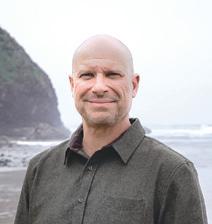
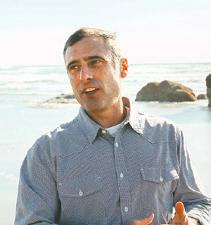




allowed to speak.” Her pieces draw inspiration from historic traditions while elevating them into contemporary works that bridge the past and future.
To celebrate the opening of Souvenir: Past to Present, the museum will host a special reception on Saturday, October 4, 2025, from 4:30 p.m. to 6:30 p.m. Guests will enjoy light refreshments and a rare opportunity to watch deVries-Wong demonstrate several of the hand techniques featured in her work. Visitors will
even have the chance to take home a small sample to try their hand at traditional needle skills.
As part of the exhibit, the museum will also host a companion hands-on event: the Make & Take Pincushion Class on Saturday, October 18, 2025, from 1:30 p.m. to 3:30 p.m. Led by deVries-Wong, participants will learn about the history of pincushions as keepsakes and souvenirs, view a variety of examples, and create their own unique piece using
techniques such as Cross Stitch, English Paper Piecing, Appliqué, Patchwork, or Stamped Piecing. While students may not finish their pincushions during the class, they will leave with all the supplies and instructions needed to complete their projects at home. Admission is $10 per person, with sponsorships available for those who may need financial assistance. Space is limited, and advance registration is encouraged. Tickets are available at cbhistory.org
Jennifer Anne Straus
October 27, 1993 - July 17, 2025
With profound sorrow, we share the sudden loss of our beloved Jennifer Anne Straus, who departed this life on Thursday, July 17th, 2025, at 4:05 pm (PST), due to complications from a necrotizing soft tissue infection. Her vibrant spirit and kind heart left an indelible mark on all who knew her.
Born in Portland, Oregon, on October 27th, 1993, Jennifer attended Riverwood Grade School and graduated from Riverwood High School with the class of 2012. Her warmth and dedication shone brightly throughout her professional journey. For eight years, she served with grace at Lake Oswego Safeway, where her cheerful presence endeared her to co-workers and customers alike. Subsequently, after earning her State of Oregon Certification for medication coding
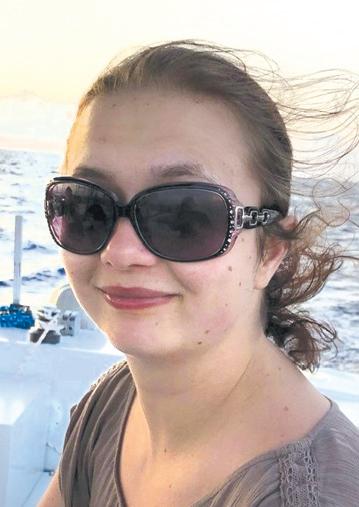
and distribution, she joined Oswego Place as a medical technician. In this role, she demonstrated exceptional pride and compassion, a testament to her unwavering commitment to serving others.
Her family takes immense pride in her remarkable accomplishments and selfless dedication. Jennifer will be eter-
nally remembered for her boundless love, her remarkable ability to connect with everyone she met, and her deep appreciation for life’s simple joys. Her radiant smile and generous spirit touched countless lives, leaving a legacy of kindness and warmth.
Jennifer is deeply mourned by her devoted parents, Steven and Marsha Straus; her cherished sister, Stephanie Straus; and a wide circle of family and friends who will carry her memory in their hearts.
“We love you, Jenny, and will miss you forever.”
A Celebration of Life will be held on Jennifer’s 32nd Birthday with family and friends.
In lieu of flowers, the family kindly requests donations to be made to: elkrockgarden.org (Jenny’s neighborhood and favorite garden.)
Murvyn Lee Schneider May 17, 1949 - September 3, 2025
Murvyn Lee Schneider was born on May 17, 1949, in Longview, Washington, to Larry and Georgiana Schneider. He grew up in Longview and carried with him the values of hard work, service, and family throughout his life.
Murv proudly served his country in Vietnam as a member of the U.S. Army. After returning from his service, Murv married Dianne Ryan, and together they shared many years of their lives. Murv lovingly helped raise Dianne’s son, Lance, and they later welcomed their daughter, Sara, who brought great joy and meaning to his life. In the years that followed, Murv married the love of
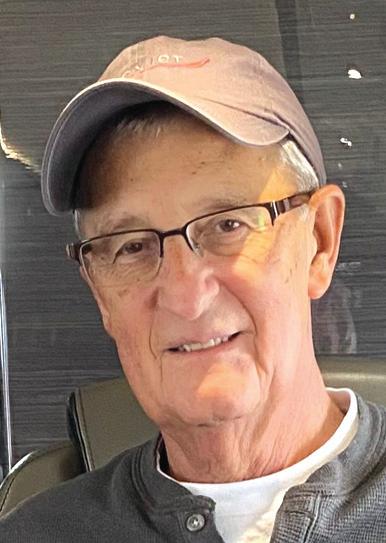
life, Judy, with
Murv especially loved his time spent at Cannon Beach, Oregon, and in Tucson, Arizona—places that brought him joy, peace, and lasting memories with those he loved. He is survived by his wife Judy; his daughter and son-in-law, Sara and Ryan Cole; and his brother, Loren Schneider, his sweet dog Daisy and grand puppies Tili and Po. He will be remembered for his kindness, loyalty, and the warmth he shared with all who knew him. A private gathering will be held to honor his life. In lieu of flowers, the family invites you to remember Murv by cherishing time with loved ones, as he always did.
WILL CHAPPELL Gazette Editor
In his 1,135th town hall, held at the Officers’ Mes at the Port of Tillamook Bay on September 5, Senator Ron Wyden responded to questions posed by constituents concerned about a range of issues from federal intervention in Oregon to his stance on Israel.
Focus returned repeatedly to healthcare policy, with questioners asking about cuts to Medicare funding passed in Republicans’ recent budget bill and Secretary of Health and Human Services
Robert F. Kennedy Junior’s impacts on public health. Wyden pointed to a confrontation with Kennedy the previous day about vaccines as a model for pushing back against the secretary and said that he would continue to fight for Americans’ access to insurance.
“We’re not going to let him or anyone else, Democrat or Republican, turn back the clock on healthcare in America,” Wyden said. The town hall drew a considerable crowd and most of the questions focused on Wyden and other congressional Democrats’ response to various policies being advanced by President Donald Trump.
Anxiety about healthcare
vadi said that he was drawn to Romney’s willingness to work with people from both sides of the aisle to find solutions, citing his work on health insurance as Massachusetts Governor, leading him to join the Republican party around 2012. While Javadi was not excited about Donald Trump’s performance in his first term as president, when he decided to run for office in 2021, he stuck with the Republican Party, hoping it had been a blip.
“I honestly ran as a Republican because I identified with who Mitt Romney was,” Javadi said. “I didn’t think Donald Trump was coming back into office, I wasn’t super thrilled with the way his first four years went, and I wanted to see the Republican Party return to those ideals that I thought made for a nice balance in politics and they continued to just move further away ever since.”
Javadi said that his frustration with the Oregon Republican Party really started this year, with the biggest conflict arising over his proposed reform to the state’s transient lodging tax (TLT) split to allow counties to use more of the funds for non-tourist-related purposes. As he worked to advance the bill, which was staunchly opposed by the Oregon Restaurant and Lodging Association, Javadi said that party leaders asked him to withdraw it, even threatening him with a primary challenge or withdrawal of fundraising support.
Uncowed, Javadi pushed ahead, eventually pushing the bill through committee after a failed vote and out of the house before it eventually failed to pass out of a senate committee. Through that process, Javadi said that he was consistently opposed by his party members, with only one eventually voting for the bill in the house, but pleasantly surprised to receive support from Democratic legislators, who believed in the policy. “They wanted to solve things; they didn’t care that I was in the opposite party and our values lined up,” Javadi said.
Friction was not limited to the transportation bill though, as Javadi said that throughout the session party leadership pressured him to oppose a series of bills that he believed would benefit his constituents.
From a bill supporting dialysis in rural communities to one extending a state program to support rural hospitals and another renewing a Medicaid provider tax, time and again Javadi said he found himself at odds with his party and asked to go against what he believed was the district’s best interest.
“It was frustrating to see the party not care about what the impacts and the consequences of the policy decisions would be, especially for our commu-
bubbled to the top repeatedly, with Wyden reassuring attendees that he would do everything in his power to protect funding for Medicare and Medicaid and push to increase that funding with taxes on the wealthy. “I’m trying to make sure we’re doing everything we can to protect people to the greatest extent possible,” Wyden said, “and if I have my way, we’re going to start rolling some of the tax breaks back for the affluent and get that money for healthcare.”
Concerns about Kennedy’s impact on access to reproductive care for women and vaccine recommendations was another recurrent theme among the questioners. Wyden said that at a hearing the previous day he had pushed Kennedy on his anti-vaccine stances, with several Republican colleagues also expressing concern, and argued that this type of pointed questioning was a model for future interactions with Kennedy. “The whole idea is to use what happened yesterday as a kind of trampoline to get more discussion about what we really want, which is a safe vaccine program,” Wyden said. Wyden pledged that he would also continue to support legislation promoting women’s right to make reproductive health choices
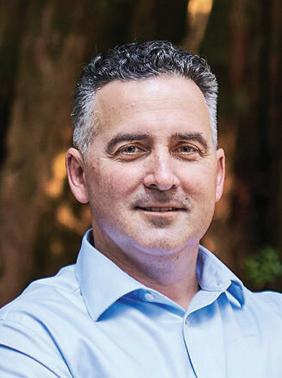
nity,” Javadi said. “I can’t look my community in the eyes thinking that I’m just playing politics with your lives, with your money, with your livelihoods because I’m interested in taking the safe route or protecting my seat for the long game.”
The tension also extended to misgivings about the direction of the Republican party on a national level since Donald Trump’s reelection, which alarmed Javadi. “I don’t like to use some of the stronger adjectives because I don’t want to get into fear mongering, but it feels authoritarian, it feels like something that could lead to tyranny if there weren’t the right checks and balances,” Javadi said. “We’re ignoring the constitution when it suits us in the Republican Party, and it’s like, no, I’m opposed to that.”
The disagreements on freespeech issues also extended to the Oregon Republican Party when Javadi, who has a homosexual son, was asked to oppose a bill making it harder to ban books in schools, which he went on to support, and another memorializing black drag performers in the state.
After the legislative session ended in June, Javadi began seriously mulling the possibility
and that he believed the Democratic party should focus on promoting healthcare for all and better access to mental healthcare to bounce back from the defeat in 2024 elections.
Wyden also addressed concerns about Trump’s deployment of federal agencies and the United States military to cities after recent events in Washington D.C., saying that he thought there was no legal basis for the actions, which he argued were based on Trump’s personal distaste for certain cities. “Obviously, there is a legal foundation for when you can have federal facilities and federal operations in a place like Oregon; I don’t see any evidence that that legal foundation has been met,” Wyden said. “I think this is about provocation, this is not about posse comitatus, this is not something that is grounded in anything other than he has never cared for Portland.”
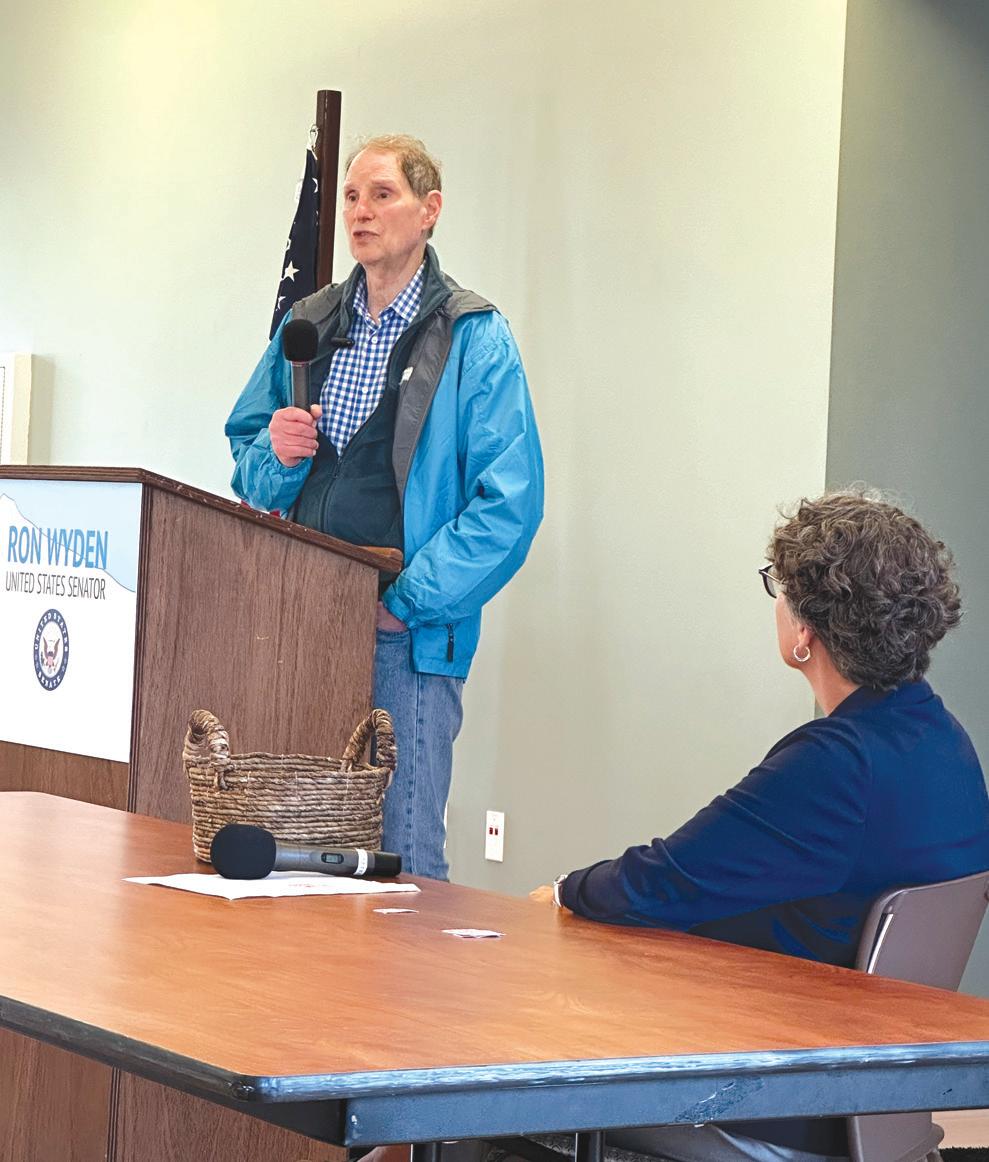
Several questioners asked Wyden about his stance on federal timber harvests considering Trump’s recent moves to increase logging on federal lands. In response, Wyden defended his record of helping to pass the Secure Rural Schools Act in 2000, which has helped rural counties replace lost timber revenues but has not currently been renewed, threatening that funding.
of switching parties, discussing it with family and friends, but the decision was finalized when the Republican Party’s stance on road infrastructure emerged in the leadup to the Labor Day special session.
Javadi said that he was opposed to the Republican proposal that would have gutted the Oregon Department of Transportation’s major road repair fund to pay for regular maintenance, slashed public transit funding and still left a hole in the department’s budget. While he is not a fan of raising taxes, Javadi said that he felt the impacts of a six-cent gas tax raise, which would cost average Oregon families between two and three dollars a month, would be less severe than major cuts to maintenance and repair funding.
“I was just picturing in my head, you’ve got this single mom or maybe it’s a young family starting to work a job, they need to get up to Tillamook to work at their job but now Highway 101’s blocked with the landslide,” Javadi said about a potential major storm impacting travel in the county.
“So, now it’s not $2.50 they’re going to miss because gas costs more, they couldn’t get to their job and make hundreds of dollars of wages for the day.”
Ultimately, Javadi voted for the bill on Labor Day despite serious pressure from party leaders and negative feedback from some constituents and filed the paperwork to switch parties the next day.
Javadi repeatedly stressed that he did not view the switch as having any impact on his commitment to serving all his constituents, whether they be Republican, Democrat or unaffiliated. Javadi said that while he believes Republican voters wanted the same things he does in terms of health and prosperity for themselves, their





On Israel, Wyden said that he believed Israeli Prime Minister Benjamin Netanyahu was the biggest issue and that seeing him removed from power was the most important step towards a twostate solution, which Wyden supports. Wyden said that he is in favor of sanctioning officials in Netanyahu’s govern-
families and communities, party leadership has become little more than an obstructionist force against Democrats.
“It felt as though it didn’t matter how good the idea is or what the problem was we were trying to solve, if the other party had blessed it, we were going to use it against them and we were going to fight it,” Javadi said. “We’d come up with whatever reason we could to make it look like it was a bad idea, all with the intention of just winning an election, maintaining power, controlling the news cycle, and I think that’s unfortunate because I don’t think Republicans are bad people.”
ment and the Israeli military who make it more difficult to deliver humanitarian aid to Gaza but said that he did not think withdrawing military aid was appropriate because of the danger of a potential Hamas resurgence.
“I believe the hardest part of this is separating out Benjamin Netanyahu from Israel,” Wyden said. “The
Javadi plans to run in the Democratic primary next May and said that so far feedback on his decision has been overwhelmingly positive and surprisingly voluminous, coming from across the nation and even several places abroad. Javadi said that while the move seemed to have resonated with people, for him, it had been as simple as seeing that Democrats aligned with his values and were working to get things done for Oregonians.
“The Democratic Party is not perfect, neither am I, neither is any of us, but that’s beside the point,” Javadi said.
“They want to defend those institutional values and consti-
vast majority of Israelis I know, and I know many, they disagree with Benjamin Netanyahu too, they want him out, but they also want to know that they aren’t going to be abandoned in the world because if this is not done well and carefully, what will happen is the second it’s done, Hamas will go back and do what they did in October 2023.”
Wyden also said that he would continue to use his position on the Senate Finance Committee to push for the release of additional files on Jeffrey Epstein, saying that he hoped to follow the money through financial institutions to uncover the truth of Epstein’s human trafficking dealings with associates. Finally, Wyden pledged that he would fight for the continuation of vote by mail in Oregon after Trump has taken aim at the practice in recent weeks after a meeting with Russian President Vladimir Putin who criticized it. “I want everybody to know that as long as I am your senior United States senator, we aren’t going to give an inch, not an inch, in terms of abandoning our vote by mail,” Wyden said. “It’s a good thing, it’s the right thing, it’s worked and it’s made a difference, and we’re not giving it up to Vladimir Putin.”
tutional norms and get things done, and that’s why I got into politics, so it’s easy.”
Javadi said that he also expects he will be given more latitude to disagree with party positions in the Democratic caucus and that he intends to maintain his style of working with whoever is willing to address problems facing the north coast.
“I think every legislator needs to feel like they’ve got that type of authority and autonomy to do what’s right based on how they see the problem,” Javadi said, “and the Democratic Party, in my opinion, gives their members more flexibility to do that.”


























































































one particular journey may have influenced the name “Oregon.”




























































































































































































































































































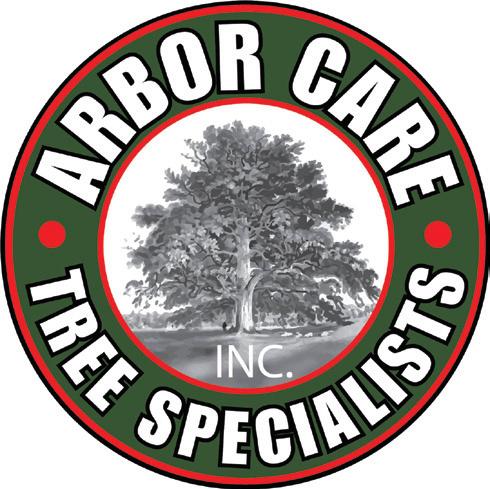








































The Cannon Beach History Center & Museum is pleased to host a special lecture, “Explorers, Ownership Claims, and How We Came to Be Named Oregon” on Thursday, October 16 at 4:00 p.m. Explorers came to the Pacific Northwest by sea and by land, making ownership claims for Spain, Russia, England, and America. Their presence left a lasting imprint on the region, with familiar names such as Heceta, Fremont, Bonneville, Douglas, and McKenzie still found on landmarks today. Historian Darrell Jabin will share his research into these explorers, the claims their countries made, and how
Known as Oregon’s Traveling Historian, Jabin has been discovering, researching, and sharing unique stories about the state since 2009. With over 500 presentations delivered across Oregon and a growing social media following, he brings a wealth of knowledge and passion to his storytelling.
This program is part of the John Williams Lecture Series, which runs annually from October through May. The event is free and open to the public.
For more information, visit www.cbhistory.org.
Saturday October 18th, 1:30-3:30 Cannon Beach History Center and Museum
In association with the show Souvenir: Past to Present, we will be presenting a Make and Take Pincushion Class. Pincushions were a popular souvenir to bring back from special places you visited and as gifts for friends. In the early days pins and needles were very expensive and so, you needed to take care to keep them safe. A pretty pin keep was a good place for that.


In this class we will have information on a variety of pincushions techniques, material choices, some history, as well as many samples to see. You will be able to choose a technique you would like to try. Cross Stitch, English Paper Piecing, Applique, Patchwork, Stamped Piecing…. You will choose one and we will have the supplies to create your pincushion available for you. A few friends and I will be available to help you learn the technique you choose and help you practice. You may not complete it in the session, but you will go home with what you need to finish your pincushion. This is a fund raiser for the History Center and Museum. All materials and teaching are being donated. We thank Center Diamond, Paper Pieces, Straythreads Quilt Guild and individuals for their donations of in kind and services.
Class is $10 and includes your materials. Sign up for the Pincushion class at Upcoming Events - Cannon Beach History Center & Museum
This class is geared for ages 7 to 100
We look forward to seeing you there Becky deVries-Wong

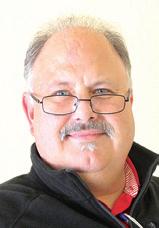
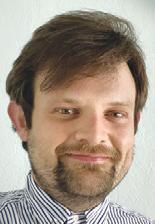
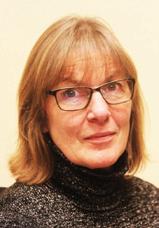

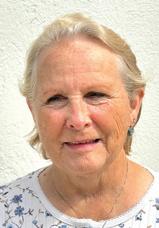
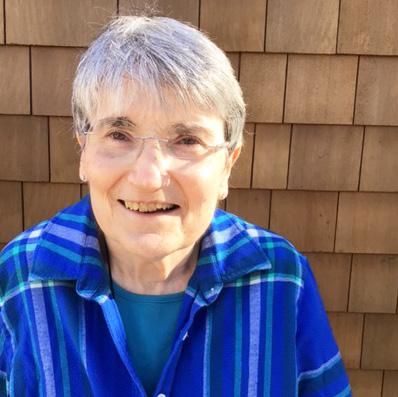
By PHYLLIS BERNT Library Volunteer
The 2025-2026 season of the library’s NW Author Speakers Series, which runs from September to May each year, got off to a great start last month with the first Local Authors Festival. Twelve local, published authors displayed, sold and signed their books, and had one-on-one discussions about their work with interested residents and visitors. The library hopes to make this authors festival an annual event.
The speaker series continues this month, when the NW Authors Speaker Series welcomes attorney and tech insider Jakob Kerr, who will discuss his debut novel, “Dead Money,” at 2 p.m., Saturday, October 18. This will be a hybrid presen-
The Coast
From Page A1
beer mustard, and a choice of bacon, sauerkraut or braised red cabbage. The sausage is a hardwoodsmoked collaboration with Portland’s Zenner’s Sausage Co., made with West Coast IPA. Pelican Brewery’s chefs came together to create the Crave the Coast special.
“It’s really for the
tation, with patrons able to enjoy the presentation in-person at the library (131 N. Hemlock), or from home via a link on the library’s website (www. cannonbeachlibrary.org).
“Dead Money” is a mystery/ thriller set in Silicon Valley. Trevor Canon, the CEO of the hottest Silicon Valley startup, Journy, is found murdered in his office. Canon, who feared such a possibility, had changed his will to include a “dead money” clause, specifying that, in the event of his murder, his $20 billion in company stock will remain frozen until his murder is solved. Enter Mackenzie Clyde, the investigator and troubleshooter for Roger Hammersmith, a ruthless venture capitalist who has sunk $5.2 billion in Journy and now wants–make that needs–his money back. Hammersmith expects Clyde to work with the F.B.I. to solve Canon’s murder quickly. Clyde, all 6’2” of her, is tough, shrewd and resourceful, qualities she honed during a difficult childhood. Now using her street smarts, brash confidence and ability to read people, Clyde pushes her way to a surprising, yet satisfying, conclusion.
In “Dead Money,” Kerr draws on his experiences in the tech world to create a novel that is filled with dead ends, plot twists and Silicon Valley “types” that are recognizable
chefs. You know, we don’t do specials that often, so when we do, seeing their creative imagination come to life is pretty awesome,” Agnello says. Pelican Brewing will also host a special 21+ dinner on Saturday, October 18th, at 6 p.m. Tickets are $65 and can be reserved by calling 503.965.3674 or emailing events@pelicanbrewing.com Visit NorthCoastFoodTrail.com to see the event list for the month and access a special mobile platform with event infor-
and often very funny. Kerr, who spent fifteen years as a lawyer and communication executive in the San Francisco tech industry, was one of the first employees at Airbnb. He has recently moved back to the Pacific NW.
The NW Author Speakers Series continues through May, hosting authors of novels, short stories, nonfiction and poetry. Presentations are both in-person and live streamed and are recorded and uploaded to the library website for future viewing. Presentations are free and open to everyone.
On Saturday, November 15, the Speaker Series will welcome storyteller Karen Kitchen to help patrons celebrate Native American Heritage Month. Kitchen, a member of the Osage Nation of Oklahoma, is a storyteller and musician, who will present Native American stories and songs.
On Saturday, January 17, Charlie J. Stephens will discuss “A Wounded Deer Leaps Highest,” a debut novel that was a finalist for the 2025 Oregon Book Awards Ken Kesey Award for Fiction. Stephens is a queer, non-binary, mixed-race writer who grew up in Salem and now lives in Port Orford. The novel has been described as a love letter to the natural world.
Rebecca Clarren, winner of the 2025 Oregon Book Awards Frances Fuller Victor
mation. Save this mobilefriendly app to your home screen, and every time you attend an event or eat a “crave dish,” simply check in with a photo to get entered into prize drawings with TCVA. There will be weekly drawings for gifts from local businesses, and one grand prize winner at the end of the month will receive a two-night stay in a geodesic dome or mirror cabin at Two Capes Lookout in Pacific City.
Award for General Nonfiction, will discuss “The Cost of Free Land: Jews, Lakota, and an American Inheritance” on Saturday, February 21. Clarren explores the experiences of her own great-great-grandparents, Jews escaping violent pogroms in Russia, who came to what is now South Dakota where they were deeded Lakota land under the Homestead Act. Clarren compares her ancestors’ rights and opportunities to those accorded the Lakota whose lands they were given.
The Eighth Annual Writers Read Celebration will take place Friday, March 6. Writers are asked to submit short stories, essays, or poetry written on a specific topic. A panel of judges reads the submissions and picks a dozen or so to be read during the Celebration. This year’s topic will be announced in November.
Poet Brian Ellis will discuss his poetry on Saturday, April 25. His poetry collection, “Against Common Sense,” was a finalist for the 2025 Oregon Book Awards Stafford/ Hall Award for Poetry. Ellis is a poet, slam poet, storyteller and teacher.
Miriam Gershow, a novelist and prolific short fiction writer, will complete the speaker series with a talk on Saturday, May 16. Her short story collec tion, “Survival Tips: Stories,” was a finalist for the 2025 Oregon Book Awards Ken Kesey
Award for Fiction. The stories, written over a twenty-year period, speak of people finding connection and meaning.
The Cannon Beach Reads Book Club will meet at their new time of 5 p.m. on Wednesday, October 15, to discuss “The Boat Who Wouldn’t Float,” by Canadian writer and environmentalist Farley Mowat. This will be a hybrid meeting with participants able to take part in the discussion in person at the library or virtually (contact book club coordinator Joe Bernt, berntj@ohio.edu, for the Zoom link).
Mowat describes his often-hilarious adventures, and misadventures, as he starts out hoping to sail from Newfoundland, Canada, to South America in a leaky, rickety, two-masted schooner called the Happy Adventure. Because of the schooner’s almost demonic habit of leaking for no discernible reason, Mowat has to limit his nautical forays to the waters around Newfoundland.
It’s no surprise that the boat never makes it beyond Canada. Mowat, who is often fueled by rum, isn’t always the best skipper; and the poorly made boat, whose deafening engine fails often, sinks constantly. But Mowat’s adventures in the fishing villages along the Canadian

coast provide opportunities for Mowat to talk about the history of Newfoundland and about the kind, colorful, often-quirky cod fishermen, now gone, who were still plying their trade in the 1960s.
Farley Mowat, a prolific author, often wrote on environmental topics and about his own experiences. Some of his other books include “People of the Deer,” “Never Cry Wolf,” “Owl in the Family” and “Woman in the Mists: The Story of Dian Fossey and the Mountain Gorillas of Africa.” His writings about the environment and about the plight of the Inuit tribe are credited with changing Canadian policies.
Lorraine Hopper will lead the discussion on October 15. Coffee and cookies will be provided at the library. New members are always welcome.
Children of all ages are invited to a Halloween Bilingual Story Time at 1 p.m. on Saturday, October 25, at the library. Volunteers will read Halloween stories in English and Spanish, after which children can get ready for Halloween by making their own animal masks, complete with jewels and feathers. There will also be Halloween candy and free books for the children who participate.
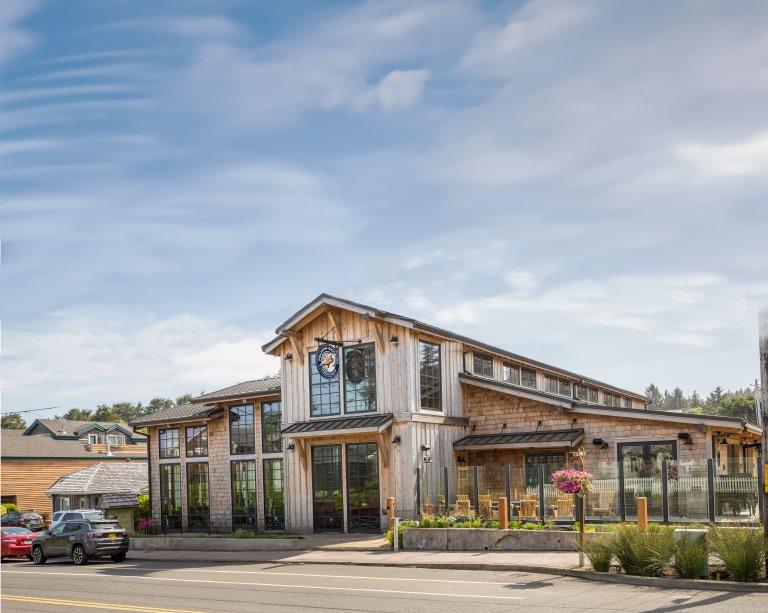


• Only $500 to open
• No checking account

•